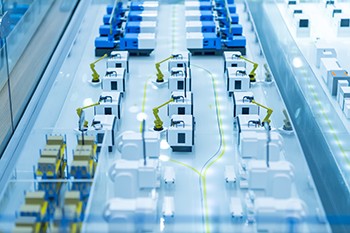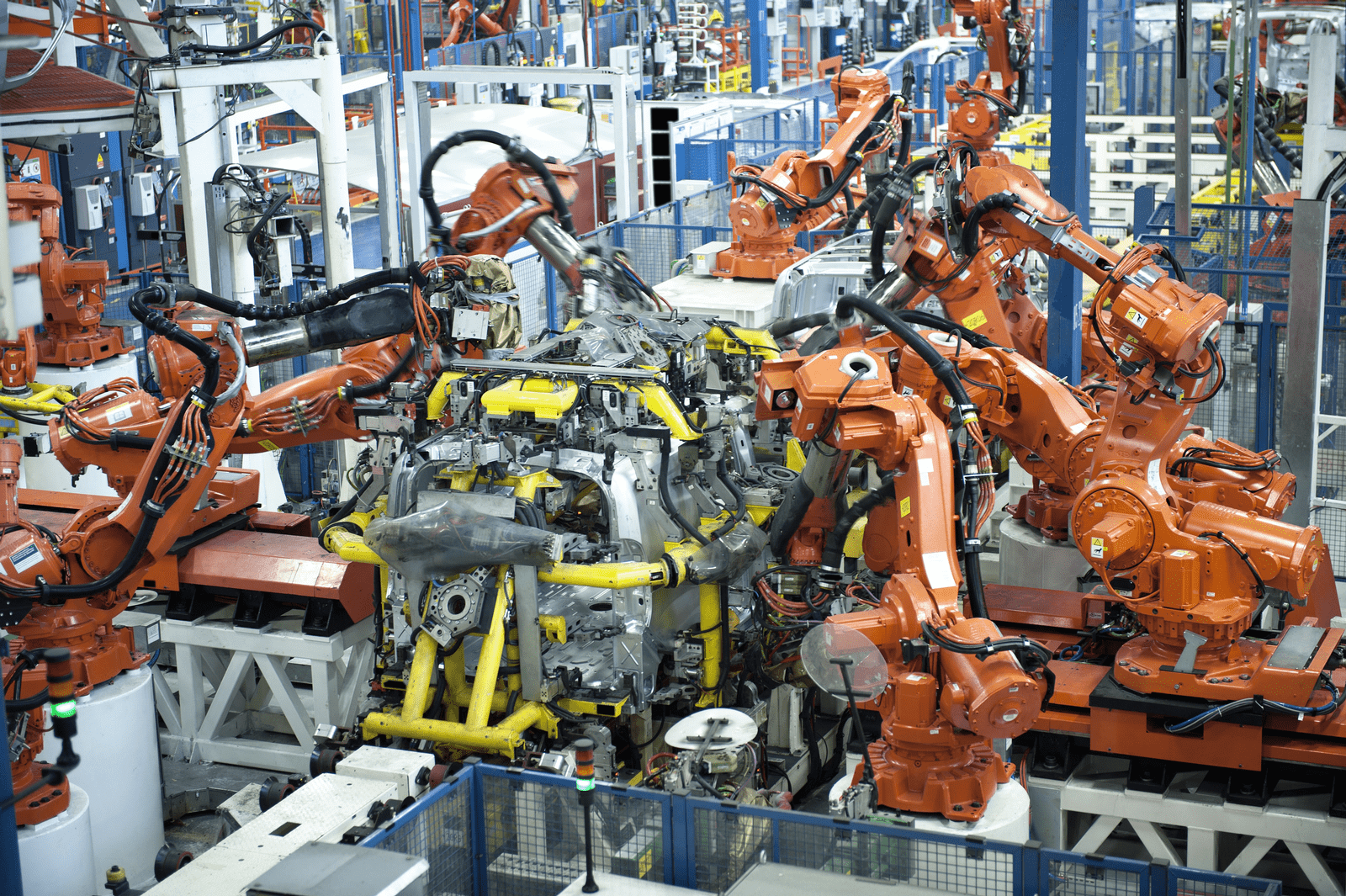There is no question that automation, machine learning, robotics and IoT can lead to operational efficiencies, increased production and cost savings – but are these technologies dumbing down your workforce and hurting your company’s long-term competitive advantage? The answer to this question requires us to take a step back and evaluate the roles that humans play in manufacturing operations, the value they bring to the company and the source of that value. It also requires us to look at how automation and technology are changing the nature of manufacturing jobs.
The first 3 industrial revolutions have been centered around manufacturing processes that are process centric – with humans being the primary actors, supported by technology. Continuous improvement over the years has been focused on improving the effectiveness and efficiency of human workers processing raw materials into finished goods. “Wait a minute, haven’t companies been automating activities (and entire jobs) for decades?” you might ask. The answer is yes, but until recently, even in highly automated operations, manufacturing technology has been heavily dependent on the role of an equipment operator constantly monitoring the automated activity and directing corrective action if something is awry.
Through the day-to-day interactions of operating the machinery, the employee develops subject matter expertise and an intimate understanding of the company’s manufacturing processes. They understand how the process should look, sound and smell; and from experience, they know what signs to look for to identify anomalies. Where instrumentation and sensor data is available, employees not only know how to interpret individual measures but assemble them together into the “big picture” of how the process is operating.
Combining the big picture with an understanding of cause and effect relationships, employees can quickly diagnose the appropriate actions to respond to process problems. The value that the employees bring to the company is not in their actions, but in their knowledge, applied understanding and experience.
The 4th industrial revolution is different in that computing capacity, connected devices and machine learning capabilities are seeking to automate human experience, knowledge and instinct out of the manufacturing processes. Machine Learning, pattern recognition and artificial intelligence are some of the core technology advances entering main-stream manufacturing operations.
Manufacturing equipment operators are becoming more hands-off – interacting less with the machinery and instead with abstracted layers of sensor data that provides only a limited view into how the equipment is operating. Along with a decrease in the depth of interaction, operators find themselves responsible for a greater breadth of responsibility (an entire manufacturing line or production facility).
Modern manufacturing roles in facilities with high degrees of automation are eliminating the opportunities for employees to develop the intimate understanding of the manufacturing processes. This is a scary prospect for 3 key reasons
1. Subject matter expertise –Manufacturing operations provide an opportunity for early-career workers to develop experience and knowledge of how your manufacturing process operates – enabling them to evolve into craftsmen, experts and the future leaders of your company. Automation is taking away the learning opportunity and preventing the development of skills and ideas that can help you develop competitive advantage in the future.
2. Understanding why processes work the way they do – In highly-automated environments, often the only people who understand why manufacturing processes work the way they do, what the design limitations are and where failure is likely to occur are the people who designed the process in the first place. Process designers typically transition to new projects (or companies) when the implementation project is complete – leaving critical operations effectively “on auto-pilot” without humans capable of stepping in should a problem occur or change be necessary.
3. Problem solving practice – When a manufacturing process comes to a stop because something un-expected occurred, it is the responsibility of operations staff to get the line back up and running as quickly as possible. A stop in production is not the time for your employees to start learning about your equipment and manufacturing process. Having hands-on equipment operators provides opportunities for employees to observe how the manufacturing process works, solving lots of small problems every-day – adjusting the equipment to maintain peak performance. This not only lowers the risk of a major failure but prepares the employees to respond quickly and decisively should a major problem occur.
Automation may not be dumbing down the workforce you have today, but if you aren’t careful it will prevent a workforce of tomorrow from having the skills, experience and abilities that your company will need. Modern technology is changing the roles of manufacturing workers and requires up-leveling of the workforce with a new set of skills for interacting with the technology, diagnosing issues and solving problems using data and intellect instead of basic senses and instinct.
Kepner-Tregoe is the recognized industry leader in helping companies leverage modern problem-solving techniques to improve manufacturing performance and achieve operational excellence. To learn more about how KT can help your company embrace automation and enable a highly effective manufacturing workforce, visit here









